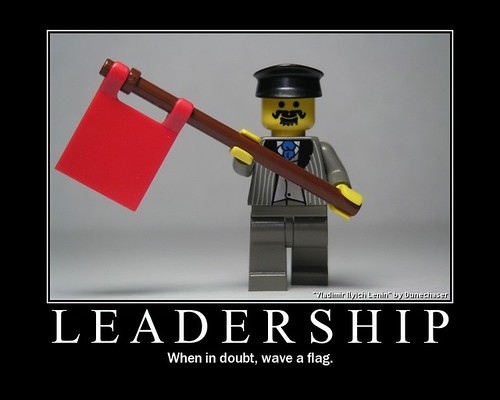"..the book on motivating people gets into the various ways of getting your "employees" (a.k.a. students) to be productive, and talks all about the pros and cons of the carrot versus the stick. Synopsis: If you can get inside the head of an unmotivated student and figure out what they want, you can motivate them to do anything."
 |
| Image by Dunechaser |
Perhaps my most important epiphany, though, has been the realization that different people need to be managed differently. I think a good manager is able to adapt to the needs of their employee/student. And, also, realizing the way you would like to be managed yourself is not necessarily the way everyone else would like to be managed.
For example, my preferred management style (as both a manager/advisor and employee/student) is hands-off-but-available. I absolutely abhor being micro-managed, and equally abhor micro-managing others. However, there have been several occasions where I had to micro-manage someone. There was just no other way - they were incapable of self-directing. (While I think industry tolerates such people, I suspect they would utterly flop in academia).
I love how Matt writes about his advisor using Jedi mind tricks to subtly nudge his students to do things. My advisor does this too, and it's just incredible. I'm very direct - when I'm reviewing someone's work, I simply say, "I think you should do X, Y, and Z." Whereas my advisor can beautifully phrase things in such a way that you never realize until long afterward that you've been nudged.

One thing that I have been paying close attention to as I fill up the lab with students, postdocs and techs is that it is really important to stop telling people what to do. It is not that I am any less direct. However, part of my job is to help the people working in my lab to learn. In my opinion, that means that they have to come up with answers on their own and have some space to make mistakes. Second, many people in my situation have warned me that as soon as you are the PI what you says has different weight. That means that sometimes what was "direct" when you were a postdoc is now too aggressive. I don't know if that is really true or not, but I don't want to make the lab an unhappy place.
ReplyDeleteThat's a good point. My "I think you should do X, Y, and Z." comment was mostly in regard to reviewing a paper or proposal after it had already been written, and I was asked about what I thought about it. Whereas my advisor will say something subtle, like, "I wonder what X, Y, and Z might mean in this context?"
ReplyDeleteHowever, I do think as a lab leader it's ok to tell people what to do now and then. For example, some potential funder is visiting and we need to demo something. Some presentation is coming up and the lab leader wants to show off the work of the students, so asks for a slide with recent data graphs on them. Or, X conference is coming up, and student could learn a lot by attending the conference - might be nice to submit a paper. etc.
But certainly not on a micro-level.